Reportage

In this combination image made from two photos, Reuters journalists Kyaw Soe Oo, left, and Wa Lone, are handcuffed as they are escorted by police out of the court Monday, Sept. 3, 2018, in Yangon, Myanmar. The court sentenced the two journalists to seven years in prison Monday for illegal possession of official documents, a ruling that comes as international criticism mounts over the military’s alleged human rights abuses against Rohingya Muslims. (AP Photo/Thein Zaw)
A Myanmar court sentenced two Reuters journalists to seven years in prison Monday on charges of illegal possession of official documents, a ruling met with international condemnation that will add to outrage over the military's human rights abuses against Rohingya Muslims.
Wa Lone and Kyaw Soe Oo had been reporting on the brutal crackdown on the Rohingya when they were arrested and charged with violating the colonial-era Official Secrets Act, punishable by up to 14 years in prison. They had pleaded not guilty, contending that they were framed by police.
"Today is a sad day for Myanmar, Reuters journalists Wa Lone and Kyaw Soe Oo, and the press everywhere," Stephen J. Adler, Reuters editor-in-chief, said in a statement. He said the charges were "designed to silence their reporting and intimidate the press."
The case has drawn worldwide attention as an example of how democratic reforms in long-isolated Myanmar have stalled under the civilian government of Nobel Peace Prize laureate Aung San Suu Kyi, which took power in 2016. Though the military, which ruled the country for a half-century, maintains control of several key ministries, Suu Kyi's rise to government had raised hopes for an accelerated transition to full democracy and her stance on the Rohingya crisis has disappointed many former admirers.
As the verdict was announced in the hot Yangon courtroom, Kyaw Soe Oo's wife started crying, leaning into the lap of the person next to her. Outside the court, police and journalists shouted as the two Reuters reporters were led to a truck to be taken away.
"This is unfair," Wa Lone told the crowd. "I want to say they are obviously threatening our democracy and destroying freedom of the press in our country."
Kevin Krolicki, Reuters regional editor for Asia, said outside the court that it was "heartbreaking for friends and colleagues and family of Wa Lone and Kyaw Soe Oo, who in addition to the outrage many will feel, are deprived of their friends and colleagues, husband and father."
Wa Lone, 32, and Kyaw Soe Oo, 28, both testified they suffered from harsh treatment during their initial interrogations after their arrests last December. Their several appeals for release on bail were rejected. Wa Lone's wife, Pan Ei Mon, gave birth to the couple's first child in Yangon on Aug. 10, but Wa Lone has not yet seen his daughter.
The two journalists had been reporting last year on the brutal crackdown by security forces on the Rohingya in Myanmar's Rakhine state. Some 700,000 Rohingya fled to neighboring Bangladesh to escape the violence targeting them after attacks by Rohingya militants killed a dozen members of the security forces.
Investigators working for the U.N.'s top human rights body said last week that genocide charges should be brought against senior Myanmar military officers over the crackdown.
The accusation of genocide was rejected by Myanmar's government, but is the most serious official recommendation for prosecution so far. Also last week, Facebook banned Myanmar's powerful military chief and 19 other individuals and organizations from its site to prevent the spread of hate and misinformation in connection with the Rohingya crisis.
"Today's verdict cannot conceal the truth of what happened in Rakhine state," Tirana Hassan, Amnesty International's director of crisis response, said in a statement Monday. "It's thanks to the bravery of journalists like Wa Lone and Kyaw Soe Oo, that the military's atrocities have been exposed. Instead of targeting these two journalists, the Myanmar authorities should have been going after those responsible for killings, rape, torture and the torching of hundreds of Rohingya villages."
U.S. Ambassador to the United Nations Nikki Haley said in a statement the convictions were "another terrible stain" on the government of Myanmar.
"It is clear to all that the Burmese military has committed vast atrocities," she said. "In a free country, it is the duty of a responsible press to keep people informed and hold leaders accountable."
The new U.N. human rights chief, former Chilean President Michelle Bachelet, called the trial a "travesty of justice" and said she would urge the Myanmar government to release the journalists immediately.
Dozens of journalists and pro-democracy activists marched Saturday in Yangon, Myanmar's biggest city, in support of the reporters. But in the country at large, with an overwhelming Buddhist majority, there is widespread prejudice against the Rohingya, and in the government and military, there is near-xenophobic sensitivity to foreign criticism.
Myanmar's courts are one of the country's most conservative and nationalistic institutions, and the darkened political atmosphere had seemed unlikely to help the reporters' cause.
The court earlier this year declined to stop the trial after an initial phase of presentation of evidence, even though a policeman called as a prosecution witness testified that his commander had ordered that documents be planted on the journalists. After his testimony, the officer was jailed for a year for violating police regulations and his family was kicked out of police housing.
Other testimony by prosecution witnesses was contradictory, and the documents presented as evidence against the reporters appeared to be neither secret nor sensitive. The journalists testified they did not solicit or knowingly possess any secret documents.









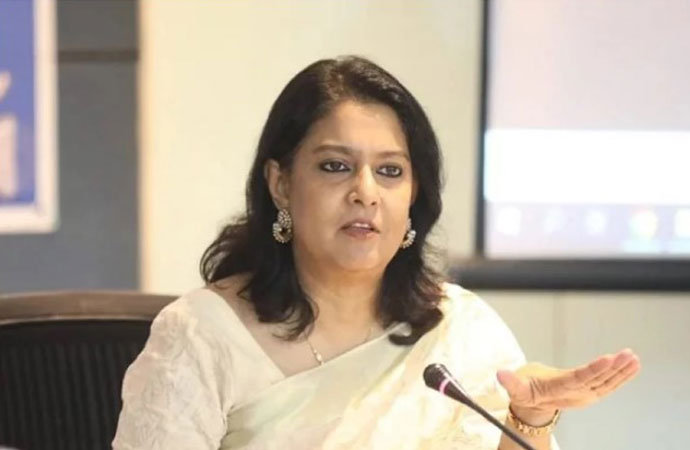
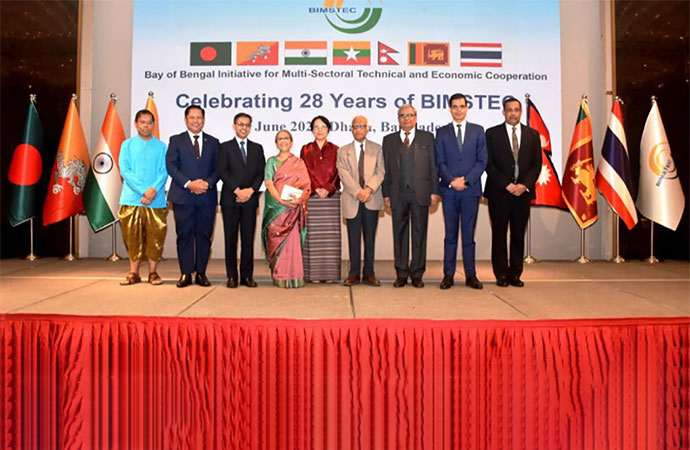








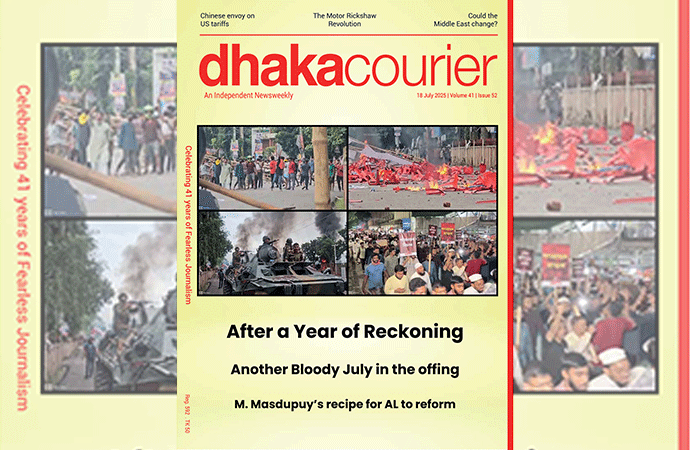
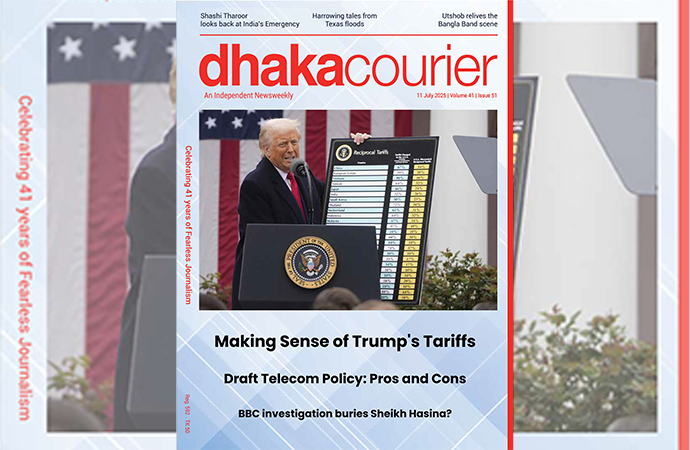
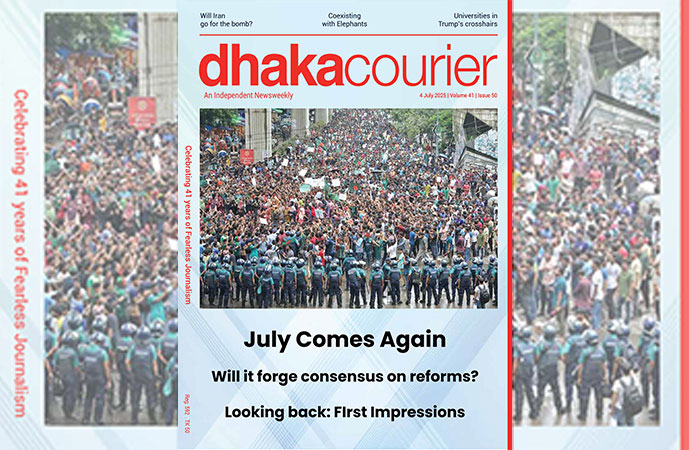
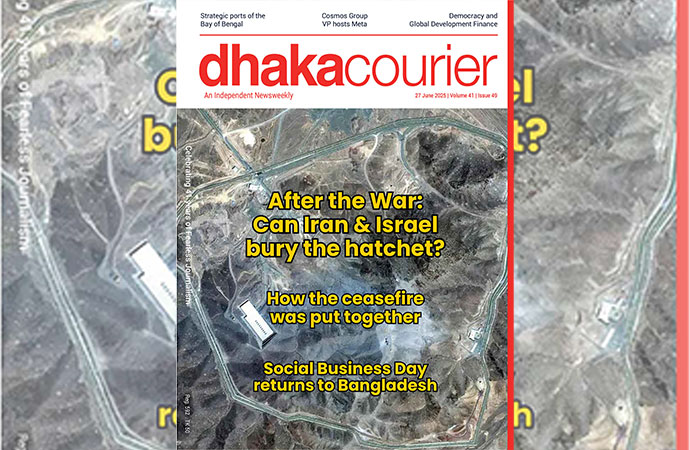
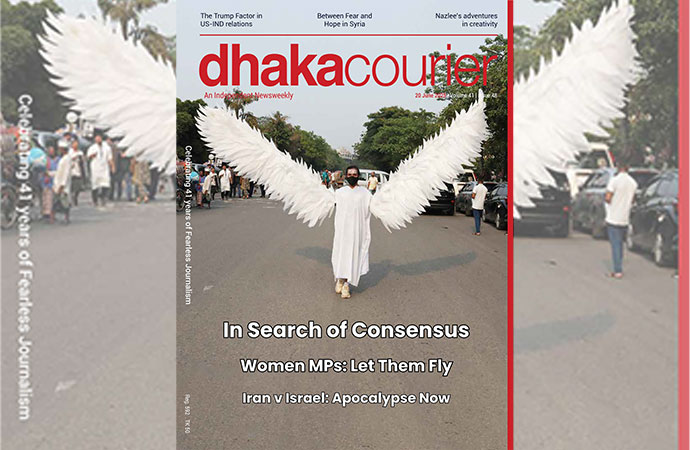
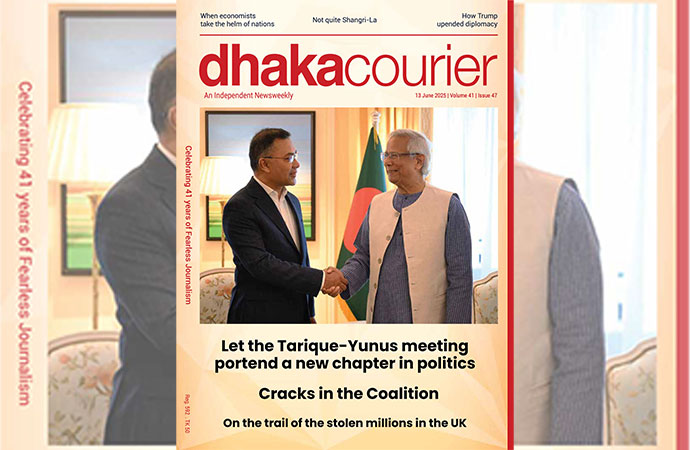
Leave a Comment
Recent Posts
The Northeastern Question
When secessionist movements sprang up across the Eastern European part ...
Trump’s Tariff: How far should ...
Will Bangladesh manage to get a last minute reprieve on its 'Trump tar ...
Rivers, Peaks, and Expressions – My Experience at th ..
What lies behind the alarming spike in violence agai ..
A Himalayan choice
Twenty Palestinians were killed at a food distributi ..